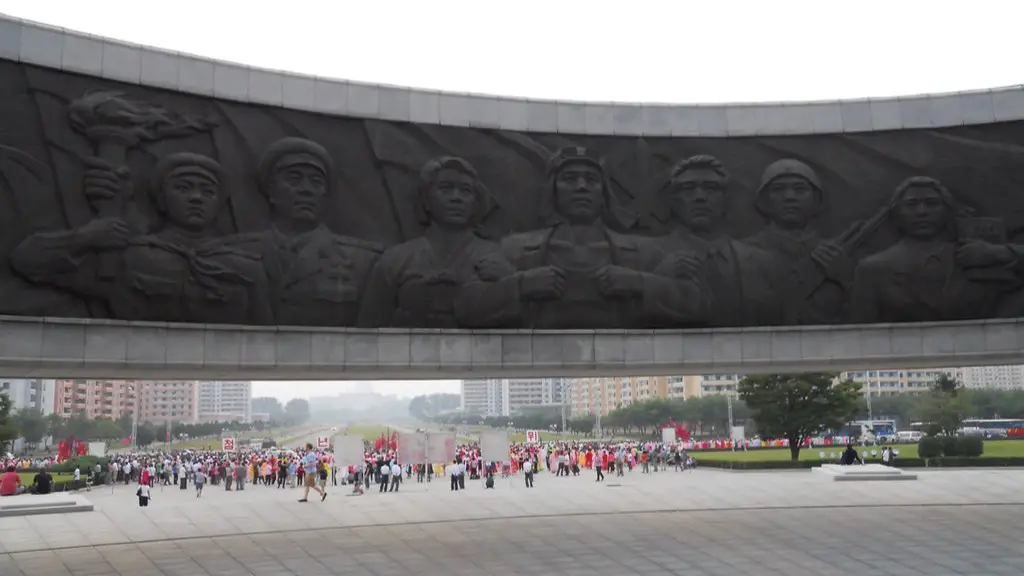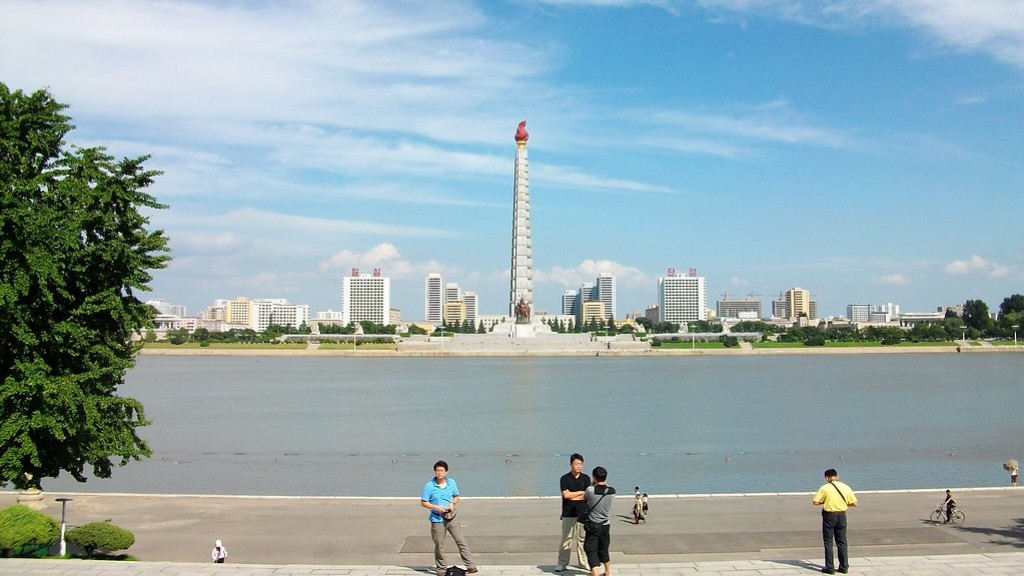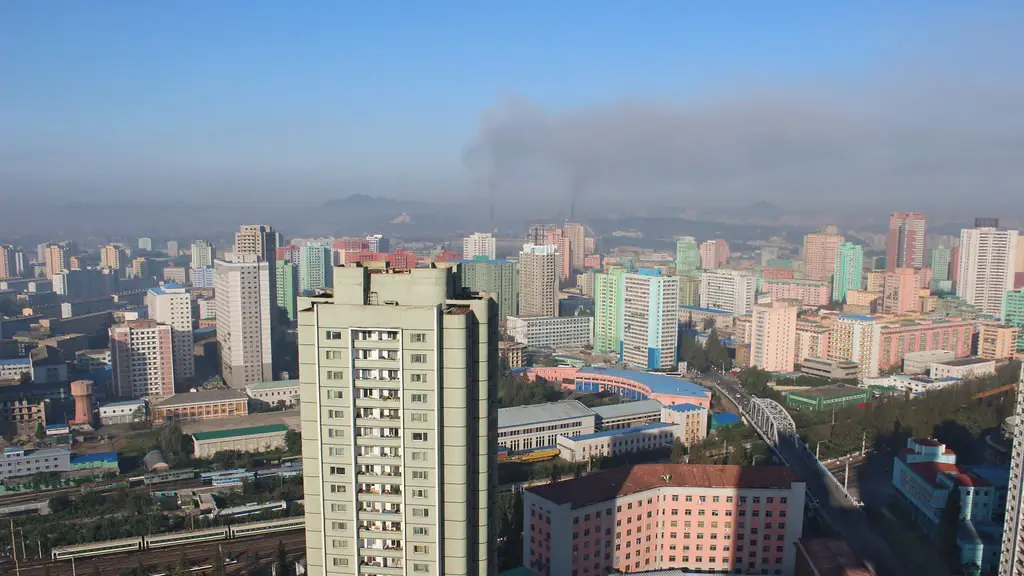As tensions continue to rise between North and South Korea, the international community is wondering what, if anything, South Korea is doing to diffuse the situation. On the surface, it may appear that not much is being done, but a closer look reveals a country that is actively working to avoid conflict.
South Korea has been working hard to build a relationship with North Korea, in spite of the latter’s nuclear and missile testing. In 2017, South Korea’s President Moon Jae-in even met with North Korean leader Kim Jong-un in an effort to ease tensions between the two countries.
Of course, South Korea is also preparing for the worst. The country recently announced that it would be spending billions of dollars on improving its own missile capabilities. It is also working closely with the United States to make sure that any potential threat from North Korea is met with an appropriate response.
So while it may seem like South Korea is doing nothing to stop North Korea’s aggression, the reality is that the country is taking both a diplomatic and a military approach to the situation.
Since the Korean War, South Korea has advocated for the peaceful reunification of the Korean peninsula. In recent years, North Korea has conducted a number of nuclear and missile tests in defiance of international law, and has refused to participate in talks aimed at denuclearization. In response, the South Korean government has imposed economic sanctions and has worked with the international community to apply pressure on North Korea.
Do South Korea and North Korea get along?
The 2018 Winter Olympics in Pyeongchang, South Korea, were a major diplomatic breakthrough for North Korea and South Korea. The two countries had been at odds for years, but North Korea’s participation in the Olympics signaled a major change in the relationship. The two countries signed the Panmunjom Declaration for Peace, Prosperity and Unification of the Korean Peninsula in April 2018. This was a major step forward in the peace process between the two countries.
The Korean War was a conflict between North Korea and South Korea that began in 1950. The war began on June 25, 1950, when North Korea invaded South Korea in an attempt to reunify the Korean Peninsula under Communist rule. However, South Korea was able to repel the invasion and, with the help of the United Nations, push North Korea back to the 38th parallel. A ceasefire was agreed to in 1953, but no peace treaty was ever signed, and the two Koreas are technically still at war.
In April 2018, the leaders of North and South Korea met at the DMZ and agreed to work toward a treaty to end the Korean War formally. This would be a major step toward peace on the Korean Peninsula, and it is hoped that the two sides can finally reach a lasting agreement.
Are North Koreans treated badly in South Korea
It is unfortunate that North Koreans living in South Korea often face mistreatment at schools, denial of employment, and other ethnic issues. These individuals have done nothing to deserve such treatment, and it is unfair that they are subjected to it simply because of their nationality. It is hoped that someday, North and South Korea will be able to overcome their differences and live in peace and harmony.
The conflict began on 25 June 1950, when North Korea invaded South Korea in an attempt to reunify the peninsula under its communist rule. The United Nations, with the United States as the principal force, came to South Korea’s aid. China also became involved, intervening on North Korea’s behalf. The Soviet Union supported North Korea, but withdrew its troops in 1958. The war continued until an armistice was signed on 27 July 1953, resulting in a ceasefire that is still in effect.
Both North and South Korea have remained technically at war since the armistice, as no peace treaty has ever been signed. The conflict has been further complicated by the presence of American troops in South Korea, as well as by North Korea’s nuclear weapons program.
Who is North Korea’s biggest ally?
China and North Korea have a close, special relationship. China is often considered to be North Korea’s closest ally. The two countries have a mutual aid and co-operation treaty, which is currently the only defense treaty either country has with any nation.
The United States and South Korea are two of the world’s strongest economies and militaries. For nearly seven decades, they have been allies, working together to maintain peace and security in the Korean Peninsula and across the broader Indo-Pacific. Austin’s visit reaffirms the strength of this alliance and the commitment of both countries to continue working together to keep the region safe and prosperous.
Who are South Korea enemies?
Since the 1950s, the two Koreas have been in a state of conflict. In 1995, South Korea first called North Korea its “main enemy.” This was a result of North Korea threatening to turn Seoul into a “sea of fire.”Since then, the North has repeatedly used this rhetoric during confrontations with the South.
Since the US policy toward Korea during World War II was to prevent any single power from dominating the Korean peninsula, it is reasonable to conclude that the division of the country at the 38th parallel was intended to stop the Soviet advance south of that latitude.
Is South Korea a poor or rich country
South Korea is one of the world’s largest economies, with a rank of 10. If this is calculated per inhabitant, taking purchasing power parity into account, then South Korea ranks 29th in the list of the richest countries. Inflation in South Korea in 2021 was around 250%.
North Korean citizens usually cannot freely travel around the country, let alone travel abroad. Emigration and immigration are strictly controlled.
Do any North Koreans live in the US?
There are many people of North Korean origin living in the US, a substantial portion who fled to the south during the Korean War and later emigrated to the United States. North Koreans in the US have been able to assimilate and build new lives, but they still have ties to their homeland and family members who remain there. North Korea is a secretive and isolated country, and it can be difficult for Americans to understand what life is like for its citizens. However, North Koreans in the US can provide some insight into what life is like in North Korea and what it is like to be a part of the North Korean diaspora.
If you are caught trying to defect from North Korea to China, you will be repatriated back to North Korea. Here, rights groups say you will often face harsh interrogations and years of punishment in kwalliso prison camps (such as the Pukch’ang camp), or in kyohwaso reeducation camps (such as the Chungsan camp or Chongo-ri camp). In some cases, you may even be sentenced to death.
Who wins the Korean War
The Korean War was a conflict between North Korea and South Korea. The war began on June 25, 1950, and ended on July 27, 1953. Neither side actually won the war, and it is still ongoing since the participants never signed a peace treaty. South Korea did not even sign the Armistice agreement of July 27, 1953, and North Korea repudiated the armistice in 2013.
South Korea is not a member of the alliance but has close ties to it and in November opened a diplomatic mission at NATO’s headquarters in Brussels. NATO does not have a formal relationship with South Korea, but the two entities cooperate on a number of issues including maritime security and disaster relief.
Who started the Korean War?
The Korean War was a conflict between North Korea and South Korea, which began on June 25, 1950. The war was sparked by North Korea’s invasion of South Korea, and it quickly escalated into a full-scale war. The United States became involved in the war to defend South Korea, and it soon became clear that the war was part of the larger Cold War conflict between the US and the Soviet Union. US leaders assumed that the Soviet Union had ordered the North Korean invasion, and they used this as justification for their own involvement in the war. The Korean War lasted for three years and ended in a stalemate, with both sides remaining in their own territories. The war left a lasting legacy of mistrust and hostility between the US and the Soviet Union, which would eventually lead to the Cold War’s escalation into the arms race and the Cold War’s ultimate end in the 1980s.
Since the collapse of the Soviet Union, South Korea and Russia have been working to establish diplomatic ties. In 1991, the two countries decided to establish diplomatic relations, and in 1992 they signed a protocol providing for regular visits of defence officials and naval vessels between the two countries.
Conclusion
The Republic of Korea, also known as South Korea, is working to peacefully reunify with the North after decades of division. The countries are separated by the DMZ, a 2.5-mile-wide strip of land that runs 148 miles across the peninsula. In April 2018, South Korean President Moon Jae-in and North Korean leader Kim Jong-un met for the first time at the Peace House, a building in the DMZ, and agreed to work towards denuclearization and peace. The two leaders have since met several times, most recently in September 2018, when they signed a joint agreement to take steps towards peace. South Korea is also working to improve North-South relations by reopening the Kaesong Industrial Complex and resuming tours to Mount Kumgang.
The two Koreas are technically still at war, and there is always the potential for conflict erupting anew. Nevertheless, South Korea has taken a number of steps to try to improve relations with its northern neighbor. These include opening up a joint industrial zone, participating in international talks aimed at getting North Korea to abandon its nuclear program, and sending food and other humanitarian aid to North Korea. While it remains to be seen if these efforts will succeed in achieving peace and stability on the Korean peninsula, they represent a sincere effort on the part of South Korea to improve relations with North Korea.




